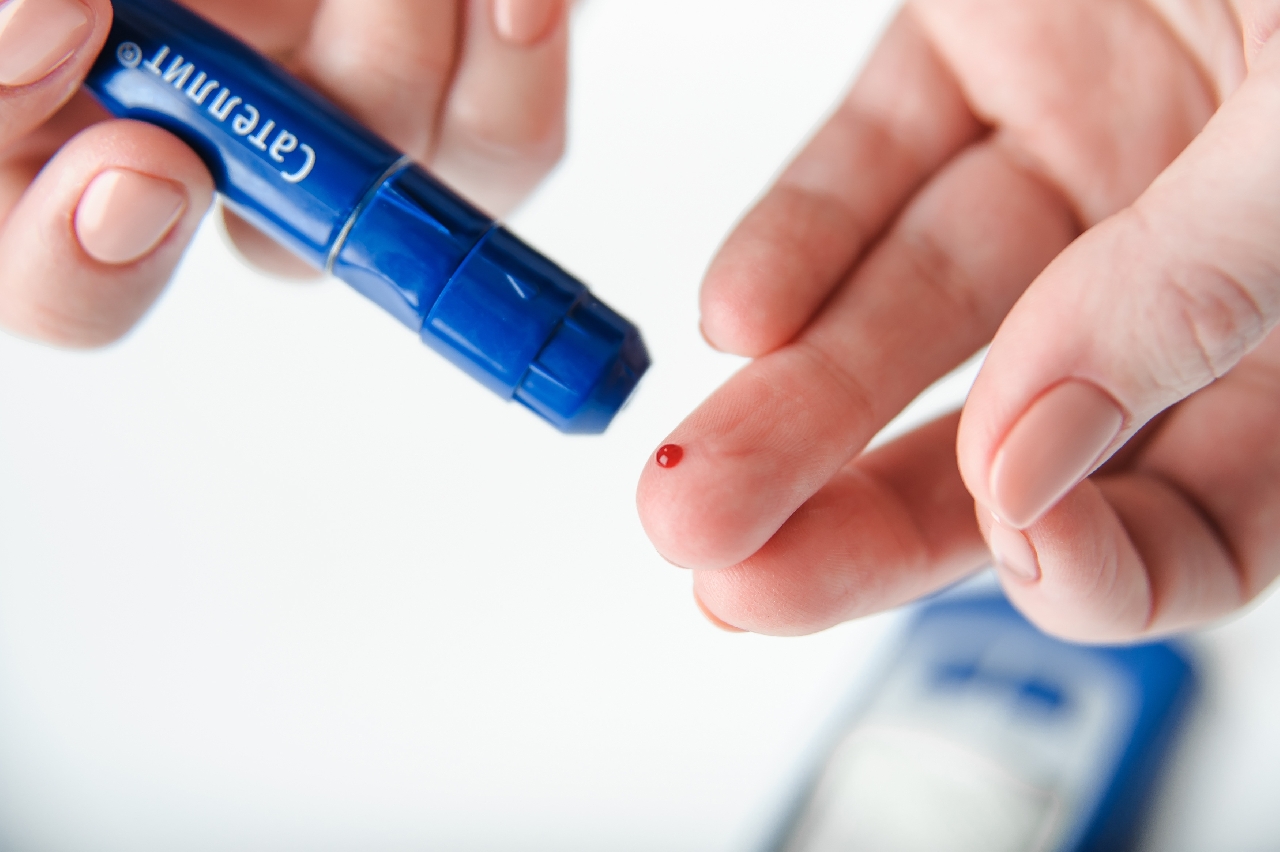THE HEALTH AND FITNESS BLOG
May 27, 2022 – By Dr. Haider Khalid
Ashwagandha is an herb used for achieving health benefits in Ayurveda. Ayurveda is a primitive science that uses different herbs to enhance natural healing. Surprisingly, the use of ashwagandha as the roots of a medicinal herb has thousands of years of history in Ayurveda (1).
The literal meaning of ashwagandha is, ‘smell of the horse.’ The word smell is for the herb’s scent, while the horse symbolizes the strength you get from consuming this herb. It has other common names, including ‘winter cherry’ and ‘Indian ginseng’ (2).
In this article, you will get to know some of the other amazing facts about ashwagandha. So sit tight and learn some facts based on research.

Here Are Some Proven Health Benefits of Ashwagandha
Ashwagandha is one of the most important herbs used in Indian traditional medicine. It offers multiple health benefits, some of which are discussed here.
Enhance Strength in Athletes

Ashwagandha provides strength and enhances oxygen delivery to the tissues during exercise (3). Muscle needs oxygen during the workout. So, increasing oxygen delivery to the muscle improves muscle performance. That’s why ashwagandha can be a great supplement to athletes.
It enhances blood oxygen, which is also beneficial for other body organs. For example, individuals with higher blood concentrations of oxygen are at a lower risk of developing heart disease (4). In addition, according to research, athletes who consumed ashwagandha during their workout gained more muscles than others (5).
Relieve Stress and Anxiety

Relieving stress is the most well-known effect of ashwagandha. It directly affects the brain centers that help you cope with stress (6). According to a clinical study, individuals who took ashwagandha showed reduced stress. Moreover, they also reported more quality sleep than those who did not consume the herb (7).
Therefore, if you have stress issues and cannot sleep peacefully, give it a try. It will undoubtedly help you in ways you would have never imagined.
You need to know that recent studies do not relate the use of this herb in the management of other psychiatric conditions such as anxiety and depression (8).
Enhance Fertility in Men

Ashwagandha also enhances testosterone production in males (9). Testosterone is a male sex hormone. By its effect on this hormone, we can conclude that ashwagandha can be an excellent male fertility boosting supplement.
According to a scientific literature review, ashwagandha also improves the quality of sperm and quantity of semen in men (10). However, more quality studies are required to confirm the effects of ashwagandha on male fertility.
May Help People with Diabetes

According to research, ashwagandha contains a chemical compound that drives glucose from the blood into the tissues (11). Because of this anti-diabetic effect, you can consume ashwagandha to check your blood sugar levels.
Research also indicates a close association of ashwagandha intake with reduced levels of HbA1c (12). HbA1c is present in the blood. Its concentration gives an idea about blood sugar levels during the last three months. By providing long-term control over blood sugar levels, ashwagandha reduces your risk of having complications of diabetes.
However, there is only limited research that confirms the above findings. Therefore, the literature needs more clinical studies to develop a credible statement.
Reduces Inflammation

Ashwagandha contains a chemical compound that reduces inflammation in the body. The exact mechanism of this process is not known. However, some pieces of research demonstrate that ashwagandha reduces inflammatory proteins in the blood (13).
Reducing inflammation inhibits cellular injury and promotes tissue repair after infection. Both of these effects are associated with better healing after any disease.
How Much Should You Consume Daily?
Now you know most of the important health benefits of ashwagandha. You probably want to know the dosages you need to take to achieve those effects. It would be best to consume different ashwagandha quantities to gain each benefit.
This article discusses individual dosages required for achieving all of the significant health effects for your better understanding.
- Stress: According to research trials, 300mg to 5gm daily doses for at least three months effectively reduce stress. This dose is also effective in improving the anxiety symptoms and quality of sleep (14) (15).
- Male fertility: Daily dose of 5gm for three months helps enhance male fertility by improving testosterone levels and sperm count (14).
- Muscle strength and function: 750 mg to 1250 mg daily dose is sufficient to improve muscle strength and function in athletes (16).
- Diabetes: Tight control of glucose levels in diabetics can be achieved by a daily dose of 400 mg of ashwagandha (17).
From all information, one thing is clear 300 mg to 5000 mg of daily dosages of ashwagandha are both safe and effective. But no research indicates the use of more than 5gm daily dose. Therefore, you need to use higher doses with caution. It would be best to consult your doctor first.
Best Time to Take Ashwagandha
The first thing you need to know is that the effects of ashwagandha usually take weeks to appear. Then, depending upon personal preference, you can take it in the morning or at night before they sleep. The timing of consumption does not influence its effects.
But there are some ways to increase your compliance with ashwagandha.
- If you have stomach issues, try to take this herb at night before sleeping. People with stomach issues can find consuming the herb on an empty stomach more challenging.
- If you are taking the herb for its sleep-inducing effects, then you may need to take it at night before going to bed.
- However, if you are also taking other supplements, taking them in the morning with your other supplements would be helpful.
REFERENCES
- Tandon N, Yadav SS. Safety and clinical effectiveness of Withania Somnifera (Linn.) Dunal root in human ailments. Journal of Ethnopharmacology. 2020 Jun;255:112768.
- Sriperumbuduri S, Umar MS, Lajoie-Starkell G, Fairhead TR, Hiremath S. Ashwagandha and Kidney Transplant Rejection. Kidney International Reports [Internet]. 2020 Oct 3 [cited 2022 May 27];5(12):2375–8. Available from: https://www.ncbi.nlm.nih.gov/pmc/articles/PMC7710824/
- Bonilla DA, Moreno Y, Gho C, Petro JL, Odriozola-Martínez A, Kreider RB. Effects of Ashwagandha (Withania somnifera) on Physical Performance: Systematic Review and Bayesian Meta-Analysis. Journal of Functional Morphology and Kinesiology. 2021 Feb 11;6(1):20.
- Pérez-Gómez J, Villafaina S, Adsuar JC, Merellano-Navarro E, Collado-Mateo D. Effects of Ashwagandha (Withania somnifera) on VO2max: A Systematic Review and Meta-Analysis. Nutrients. 2020 Apr 17;12(4):1119.
- Wankhede S, Langade D, Joshi K, Sinha SR, Bhattacharyya S. Examining the effect of Withania somnifera supplementation on muscle strength and recovery: a randomized controlled trial. Journal of the International Society of Sports Nutrition [Internet]. 2015;12:43. Available from: https://www.ncbi.nlm.nih.gov/pubmed/26609282
- Lopresti AL, Smith SJ, Malvi H, Kodgule R. An investigation into the stress-relieving and pharmacological actions of an ashwagandha (Withania somnifera) extract: A randomized, double-blind, placebo-controlled study. Medicine [Internet]. 2019 [cited 2022 May 27];98(37):e17186. Available from: https://www.ncbi.nlm.nih.gov/pubmed/31517876
- Salve J, Pate S, Debnath K, Langade D. Adaptogenic and Anxiolytic Effects of Ashwagandha Root Extract in Healthy Adults: A Double-blind, Randomized, Placebo-controlled Clinical Study. Cureus [Internet]. 2019 Dec 25 [cited 2022 May 27];11(12). Available from: https://www.ncbi.nlm.nih.gov/pmc/articles/PMC6979308/
- Speers AB, Cabey KA, Soumyanath A, Wright KM. Effects of Withania somnifera (Ashwagandha) on Stress and the Stress-Related Neuropsychiatric Disorders Anxiety, Depression, and Insomnia. Current Neuropharmacology. 2021 Jul 12;19.
- Lopresti AL, Drummond PD, Smith SJ. A Randomized, Double-Blind, Placebo-Controlled, Crossover Study Examining the Hormonal and Vitality Effects of Ashwagandha (Withania somnifera) in Aging, Overweight Males. American Journal of Men’s Health [Internet]. 2019 Mar [cited 2022 May 27];13(2):155798831983598. Available from: https://www.ncbi.nlm.nih.gov/pmc/articles/PMC6438434/
- Durg S, Shivaram SB, Bavage S. Withania somnifera (Indian ginseng) in male infertility: An evidence-based systematic review and meta-analysis. Phytomedicine [Internet]. 2018 Nov [cited 2022 May 27];50:247–56. Available from: https://pubmed.ncbi.nlm.nih.gov/30466985/
- Gorelick J, Rosenberg R, Smotrich A, Hanuš L, Bernstein N. Hypoglycemic activity of withanolides and elicitated Withania somnifera. Phytochemistry [Internet]. 2015 [cited 2022 May 27];116:283–9. Available from: https://www.ncbi.nlm.nih.gov/pubmed/25796090
- Durg S, Bavage S, Shivaram SB. Withania somnifera (Indian ginseng) in diabetes mellitus: A systematic review and meta‐analysis of scientific evidence from experimental research to clinical application. Phytotherapy Research [Internet]. 2020 Jan 23 [cited 2022 May 27];34(5):1041–59. Available from: https://pubmed.ncbi.nlm.nih.gov/31975514/
- Logie E, Vanden Berghe W. Tackling Chronic Inflammation with Withanolide Phytochemicals—A Withaferin A Perspective. Antioxidants [Internet]. 2020 Nov 10 [cited 2022 May 27];9(11):1107. Available from: https://www.ncbi.nlm.nih.gov/pmc/articles/PMC7696210/
- Mahdi AA, Shukla KK, Ahmad MK, Rajender S, Shankhwar SN, Singh V, et al. Withania somniferaImproves Semen Quality in Stress-Related Male Fertility. Evidence-Based Complementary and Alternative Medicine [Internet]. 2011 [cited 2022 May 27];2011:1–9. Available from: https://pubmed.ncbi.nlm.nih.gov/19789214/
- K C, J K, S A. A Prospective, Randomized Double-Blind, Placebo-Controlled Study of Safety and Efficacy of a High-Concentration Full-Spectrum Extract of Ashwagandha Root in Reducing Stress and Anxiety in Adults [Internet]. Indian journal of psychological medicine. 2012 [cited 2022 May 27]. Available from: https://pubmed.ncbi.nlm.nih.gov/23439798/
- Raut AA, Rege NN, Tadvi FM, Solanki PV, Kene KR, Shirolkar SG, et al. Exploratory study to evaluate tolerability, safety, and activity of Ashwagandha (Withania somnifera) in healthy volunteers. Journal of Ayurveda and integrative medicine [Internet]. 2012 [cited 2022 May 27];3(3):111–4. Available from: https://www.ncbi.nlm.nih.gov/pubmed/23125505
- Sontakke S, Thawani V, Saoji A, Goswami VS, Agnihotri A. Effects of Withania somnifera in patients of schizophrenia: A randomized, double blind, placebo controlled pilot trial study. Indian Journal of Pharmacology [Internet]. 2013 [cited 2022 May 27];45(4):417. Available from: https://www.ncbi.nlm.nih.gov/pmc/articles/PMC3757622/

Leave a Reply